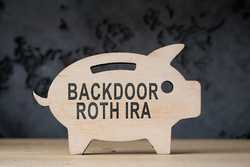Attracting angel investors or venture capitalists to fund a small business can be tricky for entrepreneurs, if not impossible. According to funding platform Fundable, fewer than 1% of startups receive funding from angel investors, and just 0.05% benefit from venture capital. If traditional start-up investors aren't an option, you might consider equity crowdfunding, a type of financing where you raise money from private investors in exchange for a stake in your company.
How equity crowdfunding works
Equity crowdfunding, or regulation crowdfunding, is a type of financing where private investors (the so-called "crowd") invest in an early-stage business in exchange for unlisted shares, or equity, in the company. The individual investors become shareholders and can profit if the company does well—or lose money if it doesn't. Unlike peer-to-peer (P2P) lending or small business loans, there's no debt component, so you don't need to repay the money you raise.
Equity crowdfunding takes place over online platforms that connect entrepreneurs and investors. The platforms charge for their services. Though the fees vary by site, they may include:
- A monthly listing fee.
- Payment-processing fees.
- Legal, accounting, and other service fees.
- A percentage of the money you collect through the platform.
This type of crowdfunding is more complicated than simple fundraising platforms like GoFundMe or Kickstarter. That's because your business offers equity to investors in exchange for capital, so the federal government regulates the process—hence the name regulation crowdfunding. Below are a few of the rules that a business must follow to sell shares through an equity-crowdfunding platform:
- All transactions must occur through a Securities and Exchange Commission (SEC)-registered broker-dealer or a funding portal.
- The company can raise a maximum of $5 million in a 12-month period.
- Based on federal guidelines, the company must limit the amount of money it accepts from non-accredited investors in any 12-month period.
- The company must disclose certain information in public filings with the SEC, investors, and the registered intermediary.
A good equity-crowdfunding campaign should explain details about your business—and why you're qualified to run and grow it—including:
- Fundraising goal.
- How you'll use the money you raise.
- Target customers.
- Profit margin.
- What makes your business unique.
- Why investors should support you.
What happens after a round of equity crowdfunding?
Once you've completed your first equity-crowdfunding round, your business is accountable to its investors. You'll issue equity to your backers based on their invested amount and update them on your progress. You'll also give your backers their share of profits when you start earning revenue. If you need additional funding, you might raise a second or third round of equity crowdfunding—or move on to angel investors or institutional funding.
Risks and rewards of equity crowdfunding
As with any business funding, equity crowdfunding has its pros and cons. Here's what to consider before making any decisions.
Pros:
- Equity crowdfunding can be a viable option when you can't find financing elsewhere.
- There are no debt payments or interest expenses.
- You can access a large pool of investors, including friends, family, fans, and customers.
- You set the campaign terms and have complete control of the offering.
- The campaign can generate buzz for your business before it's up and running.
Cons:
- You give up a portion of ownership in your company and future cash profits.
- Your company's financial details are publicly available, making them visible to competitors.
- Creating the campaign may incur substantial upfront costs in time and money.
- Fundraising is limited to $5 million a year.
- You might miss your funding goal.
Equity crowdfunding vs. other types of crowdfunding
Equity crowdfunding lets you raise funds from private investors, but you'll need to register with the SEC to participate and give away part ownership. If you decide equity crowdfunding isn't for you, other crowdfunding options exist, including the following:
Donation-based crowdfunding
Donation-based crowdfunding raises funds from friends, family, and others, often for social, personal, or non-profit causes. The funds are no-strings-attached donations, so you don't have to repay them or offer anything in return. Like other types of crowdfunding, its success relies on collecting small amounts of money from many people.
Debt crowdfunding
Debt crowdfunding—or peer-to-peer (P2P) lending—is like a crowdfunded small business loan. You borrow money from individual investors rather than a traditional bank or lender. In exchange, the investors earn a fixed rate of return as you repay the loan (with interest) over an agreed-upon repayment period, typically five years or less.
Royalty crowdfunding
With royalty crowdfunding, backers receive a percentage of the revenue generated by the project or company they help fund. This crowdfunding option may work well with creative ventures like films, music albums, or video games, with the potential for ongoing revenues once the project wraps up.
Rewards crowdfunding
With rewards-based (or seed) crowdfunding, you solicit donations and offer a non-financial reward in exchange—such as a discount on or early access to a forthcoming product. It's one of the most popular types of crowdfunding among startups and entrepreneurs because it can be an excellent way to generate buzz and create ambassadors for your brand.
Alternatives to equity crowdfunding
While crowdfunding can be an effective way to fund your small business, it's not your only option. Here are four alternatives to consider.
Venture capital
Venture capital (VC) is a type of equity financing used to support startups and other rapidly growing companies. VC firms raise money from limited partners (LPs) to invest in promising startups in exchange for equity in the company. VCs often offer benefits beyond funding, such as strategic and operational guidance, connection to other investors and customers, and support for hiring key personnel.
Angel investors
Angel investors are generally high-net-worth individuals who invest their capital directly in emerging businesses, often during early funding rounds. Many angel investors are current or former entrepreneurs, and most are accredited investors. They frequently bring strategic industry knowledge to the company and take active roles as directors or board members.
Small business loans
A small business loan is financing offered to a company by a bank, credit union, online lender, or P2P lending site. There are several types of small business loans, including term loans, credit lines, and accounts receivable financing, where you sell your outstanding invoices to a lender to receive early payment for them.
Small business grants
Small business grants are financial awards from companies, foundations, and government agencies that you don't have to repay. Grants may be available for young entrepreneurs, women, minorities, veterans, and people with disabilities. While free money can help your business grow, most grants have strict eligibility requirements, and the competition can be fierce.
How to get started with equity crowdfunding
While the process varies by platform, these are the basic steps for launching an equity-crowdfunding campaign:
- Develop your crowdfunding pitch. The pitch should explain to investors why you need funding and how you'll use it. It should also demonstrate that you've researched market trends and financial forecasts and why your target customers need your product or service.
- Structure the offering. You'll work with a team of financial advisors, lawyers, and others to determine what you'll offer, the terms of the equity, and your company's valuation.
- Sign up through a platform. The platform must be registered with regulators to accept investments from non-accredited investors.
- Provide the required information. The crowdfunding platform will request business plans, forecasts, financial statements, and information for a background check, per the SEC's Bad Actor rules.
- Launch and promote your campaign. Share the offering with customers, family, friends, and anyone who might invest. When you reach your funding goal (or the campaign ends), the platform will release funds to your business.
- Issue equity to investors. You'll distribute equity to your backers and use the funds to launch or expand your business.
Equity-crowdfunding sites
The SEC regulates equity crowdfunding, so using an SEC-registered funding platform is essential. As you do your research, here are eight options to consider:
Equity-crowdfunding platforms must be registered with the SEC, but that doesn't mean the various sites offer comparable experiences. Before choosing a platform, research its reputation and track record. Are online reviews positive? Are there any scandals in the news? Has the platform successfully funded a variety of projects?
It's also important to consider the platform's user experience. Is the platform easy to navigate? Does it have helpful resources for entrepreneurs and investors? Of course, you'll also want to consider the platform's fees and terms, as some charge higher fees than others—or have more restrictive terms for entrepreneurs (or investors).
The best equity-crowdfunding platforms generally have a good reputation, strong track record, competitive fees, and user-friendly experience. That way, you'll have the tools you need to launch and manage a successful equity-crowdfunding campaign.
Frequently asked questions (FAQs)
How is equity crowdfunding different from other types of crowdfunding?
There are several types of crowdfunding, but only equity crowdfunding gives backers unlisted shares in exchange for investing in a company. For this reason, regulation crowdfunding (its other name) is also the only type of crowdfunding that's regulated by the SEC.
How successful is equity crowdfunding for investors?
As with other types of crowdfunding, there are no guarantees when it comes to equity crowdfunding. Whether your campaign is successful depends on several factors, including your business plan, market research, financial forecasts, target customers, and the ability to convey what makes your business unique. Still, enough entrepreneurs find success with equity crowdfunding that it may be worth pursuing if venture capital and angel investors aren't in the cards.
What are the risks associated with equity crowdfunding for business owners?
Not all equity-crowdfunding campaigns are successful, so there's always the risk that you won't raise enough capital to launch or expand your business. You're also giving up part ownership in the company, which may mean that investors have more control than you're comfortable with.





